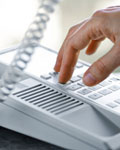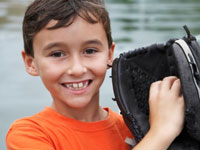Teeth Grinding In Children - In Your Local Marietta, GA Area
Implant & Family Dentistry
Appointments: (770) 973-4214

Christopher Bakke D.M.D.
Implant & Family Dentistry
1735 Roswell Rd. Bldg #200
Marietta, GA 30062



Implant & Family Dentistry is a trusted Marietta area dental implants practice providing natural-looking, comfortable tooth replacement. We make it our mission to use a gentle touch during the process.
We hold ourselves to the highest standards to replace missing teeth and provide you with natural-looking results. Our goal is to restore your confidence and your bright, healthy smile.
A negative self image can be detrimental to many facets of your life. Marietta area dentist Dr. Christopher Bakke understands the positive life-changing power that a healthy and beautiful smile can bring to you. Here at Implant & Family Dentistry, we don't want you to be embarrassed any longer. Why not take your smile - and even your life - to a new level of self-confidence and beauty?
A beautiful smile can brighten your life! If you are continuously hiding your chipped, stained, or cracked teeth from others, it's time for a change! Christopher Bakke, D.M.D., a trusted Marietta area dentist, can fix chips, cracks, and stains to reveal a great new smile - and a new you. You'll look so good you'll wonder why you waited so long!
If you're interested in natural-looking bridges and dentures, look no further than Christopher Bakke, D.M.D. who practices in the Marietta, Georgia area. Using modern materials and techniques, Dr. Bakke can achieve the natural look you seek. You will be very pleased with the comfortable, long-lasting results.
Don't let untreated dental problems get you down. Rebuild your confidence with a beautiful new smile. From simple treatments that make a big difference, to more extensive work, unveiling the smile you were meant to have can have profound life-changing effects. Serving the Marietta, GA area and offering children's dentistry, Dr. Bakke can help you develop an affordable treatment plan you'll feel good about.

More Children's Dentists in the Marietta, GA Area Near You
Thornton, Neely D.D.S.
707 Whitlock Ave Sw # C25
Marietta, GA, 30064-4655
Loushine, Bethany A D.D.S.
3432 Mercer University Dr
Macon, GA, 31204-4902
Doctor - Activate Your Free 1stPediatricDentist Directory Listing
Endodontics, Dalton D.D.S.
1200 W Waugh St # D
Dalton, GA, 30720-8918
Mumpower, Samuel J D.D.S.
1901 J L Todd Dr
Rome, GA, 30161-5015



